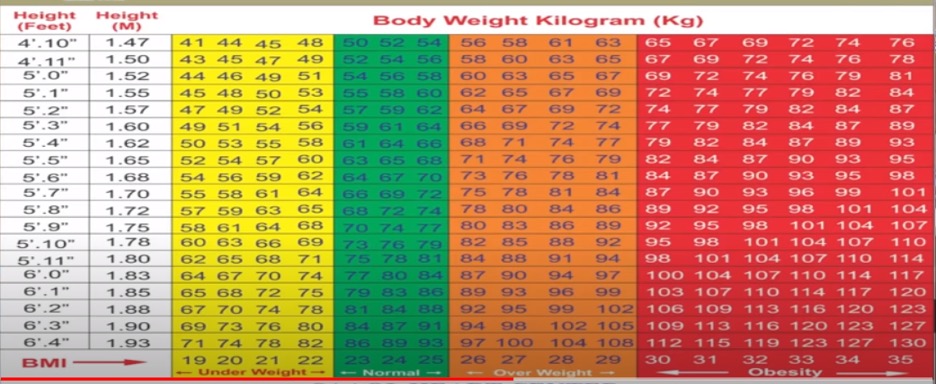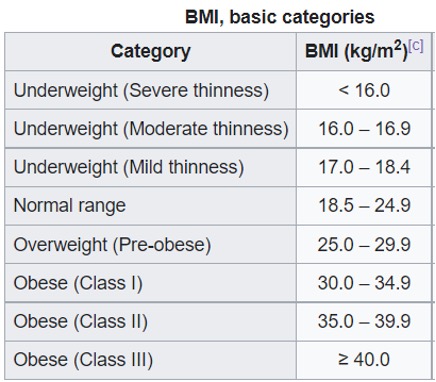Contribute
| What Should Be Our Ideal Weight |
Drs. Indrajeet Tyagi and Iranna Hirapur
07/14/2023
Many people wish to know the answer to this question: how much should I weigh? There is no single ideal weight for all individuals. Everybody is different, and various factors such as age, height, and sex, and mental factors can be just as important. An ideal weight is the one with which a person feels the most comfortable. Changes in total body weight vary for men and women. Men often gain weight until about age 55, and then begin to lose weight later in life due to a drop in the male sex hormone testosterone. Women usually gain weight until age 65, and then begin to lose weight.
Is there a method to calculate our ideal weight: There is process called Body Mass Index (BMI). It is a calculated measure of weight relative to height that translates to a measure of body fat based. The BMI is expressed in kg/m2, resulting from mass in kilograms and height in meters. If pounds and inches are used, a conversion factor of 703 (kg/m2)/(lb/in2) is applied. When the term BMI is used informally, the units are usually omitted. A high BMI can indicate high body fatness.
![]()


Age is not a factor in BMI for adults, but it is for children. This is because they are growing. Centers for Disease Control and Prevention (CDC) use both age and natal sex in its BMI calculations for people between the ages of 2–19 years.
Explain the ranges of BMI values and valid categories: If your BMI is less than 18.5, it falls within the underweight range. If your BMI is 18.5 to 24.9, it falls within the Healthy Weight range. If your BMI is 25.0 to 29.9, it falls within the overweight range. If your BMI is 30.0 or higher, it falls within the obese range.
At what age is it hard to lose weight: As we reach our 30's, our bodies usually need less energy, meaning we may not be able to eat the way we did in our 20's. Then, as you move past 40 and head to middle age, changes in muscle, hormones and metabolism all make it harder to stay trim.
Will excess weight cause health issues: Definitely Carrying extra fat leads to serious health consequences such as cardiovascular disease (mainly heart disease and stroke), type 2 diabetes, musculoskeletal disorders like osteoarthritis, and some cancers (endometrial, breast and colon). These conditions cause premature death and substantial disability.
Maintaining a moderate/healthy weight can help your body more efficiently circulates blood, more easily manage fluid levels, and less likely to develop diabetes, heart disease, certain cancers, gallstones, osteoarthritis, breathing problems and sleep apnea.
You may also access this article through our web-site http://www.lokvani.com/




